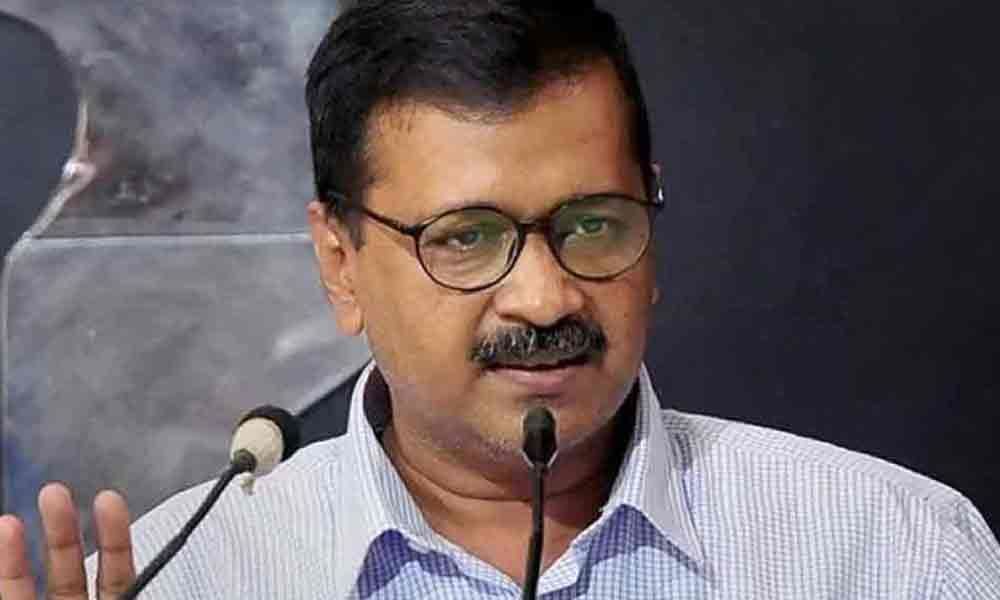Live
- 3 months after opening, Morampudi Flyover remains incomplete
- Skill enhancement session organised for school teachers
- Tribal Ashram school girl students fall sick again
- Grand finale of Innovation marathon begins at IIT Tirupati
- Ensure no inconvenience to bus passengers: MLA
- Being overweight surpasses smoking as Australia's leading health risk
- Rush of Devotees at Tirumala normal, to take six hours for darshans
- Thiruvannamalai turns a major revenue earner for RTC
- Development works in Warangal to take off on war-footing: Ponguleti
- Great day for America: Trump welcomes FBI chief's resignation announcement
Just In
Delhi government strives to provide surplus water to city


As several parts of the country are facing a serious water crisis, the Delhi government is working to make the national capital self-sufficient in water -- instead of perennially depending on neighbouring States.
New Delhi: As several parts of the country are facing a serious water crisis, the Delhi government is working to make the national capital self-sufficient in water -- instead of perennially depending on neighbouring States.
As per official data, Delhi gets 900 Million Gallons Per Day (MGD) water from groundwater as well as rivers Ganga and Yamuna against a total requirement of 1,125 MGD. "The government does not want to depend on other States for the city's water needs. It is working on projects to ensure that water availability in Delhi will be more than its demand in the next few years," a government official said on the condition of anonymity.
Although the work has started, the projects will take a few years to fructify. To make Delhi self-sufficient in water, the Arvind Kejriwal government has a three-layer plan which includes constructing underground reservoirs to store flood water, storing rainwater in various places in Delhi to enhance the groundwater level and treating sewage water and storing the water in local ponds.
"The Delhi Jal Board is constructing a reservoir in Palla Yamuna Floodplain for storage of flood water in 1,000-acre area to improve the groundwater level and water sustainability. Consultants are being appointed for the project," the official said.
Kejriwal had earlier said that if the city can store floodwater, it can meet its one year's water demand easily. "Delhi has a peak requirement of about 1,200 MGD water. During the rains, 6 lakh cusecs of water flows through the Yamuna every day.
This is enough water to satisfy Delhi's needs for an entire year. At the moment we are not utilising this resource. Yamuna's floodplains are large and porous, and we can use this to our advantage to tap into the water that flows in the river during the monsoons," Kejriwal had said.
To recharge the groundwater, the Delhi government in 2018 approved a proposal to rejuvenate 159 water bodies across the city besides creating two mega lakes at Nilothi and Rohini.
A total of Rs 376 crore was approved for rejuvenation of the 159 lakes and Rs 77 crore to set up two mega lakes. The Delhi Jal Board also decided to build Decentralised Sewer Treatment Plants (DSTPs) in parks, schools, housing societies, commercial complexes, industries and colleges among other places.
An additional 106 MGD Drinking Water Treatment Plant in Chandrawal is coming up at a cost of Rs 598 crore with the advanced technology of Ozonation and Activated Carbon to ensure un-interrupted working of plant.
It will treat high ammonia content up to the extent of upto 4 ppm in the Yamuna raw water source. Earlier, the plant had to be shut down due to the presence of 1 ppm of ammonia in raw water, disrupting supply in Chandni Chowk, Karol Bagh, Civil Lines, Rajender Nagar and nearby areas, the official said.

© 2024 Hyderabad Media House Limited/The Hans India. All rights reserved. Powered by hocalwire.com






